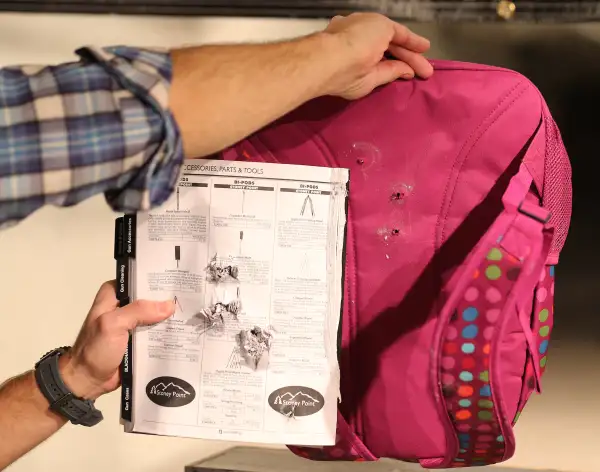What to Know About Buying a Bulletproof Backpack

Bulletproof backpacks sales spiked in the days following the deadly Florida high school shooting as parents look for ways to keep their children safe.
If you're considering buying a bulletproof backpack for yourself or your loved ones, there are a few things you should know about them first.
Money spoke to Joe Curran, founder of Massachusetts-based bulletproof equipment maker BulletBlocker, to understand the benefits and drawbacks of wearable bulletproof products like backpacks, jackets and more.
"We've seen a 200-300% sales increase in backpack and backpack insert sales since Florida and a 30% increase for our products overall," he said. Curran, a former U.S. Army Ranger, corrections officer and firearms instructor, started BulletBlocker to help protect his own two children after the Virginia Tech massacre in 2007.
Here's what Curran told us about buying bulletproof backpacks.
Bulletproof backpacks only protect against handguns
Bulletproof backpacks aren't rifle-proof, Curren said. They can only protect against bullets from handguns and pistols, which typically aren't as strong as rifles. Mass shooters increasingly seem to prefer rifles like the AR-15, making bulletproof backpacks potentially less useful.
The reason behind this comes down to practicality.
The Kevlar-like material several companies use to produce bulletproof backpacks is categorized as "Level 3A" by the National Institute of Justice (NIJ), the research, development and product testing wing of the U.S. Justice Department.
That means the material is considered a soft body armor, which isn't resistant to all bullets. But it's also considerably lighter, making bulletproof backpacks comparable to regular backpacks in terms of weight. Bulletproof backpacks aren't made with stronger ballistic-resistant hard plates because they would be too heavy to wear, Curran says — that's especially true for small children.
Bulletproof backpacks can be expensive
Bulletproof backpacks can range in price from $200-500. Some companies, including BulletBlocker, also sell cheaper, $99 bullet-resistant inserts that slide into regular backpacks.
Curran says these inserts can be just as effective as full-on bulletproof backpacks. But he warns that buying multiple inserts and stacking them together won't provide you with increased protection.
It's also worth remembering that some students store their backpacks in their lockers for part or all of the school day, a scenario that makes bulletproof backpacks less useful in an emergency.
Bulletproof backpacks don't last forever
Even if you take great care of your bulletproof backpack, you might find yourself replacing it sooner than later. "They expire after about five years," says Curran. Take care not to leave one out in the sun or heat, and if yours gets damaged, consider replacing it.
Another tip from Curran? Don't buy used bulletproof products, because you don't know what they've been through. There's a chance they could be worn out, and if that's the case, they might not protect you in a dangerous situation.
The Justice Department certifies bulletproof products
Any bulletproof products you buy should be NIJ certified, says Curran. The NIJ certifcation should be displayed on a company's website. If it's not there, you should ask before buying. Consider not making the purchase if the company does not have such a certification.